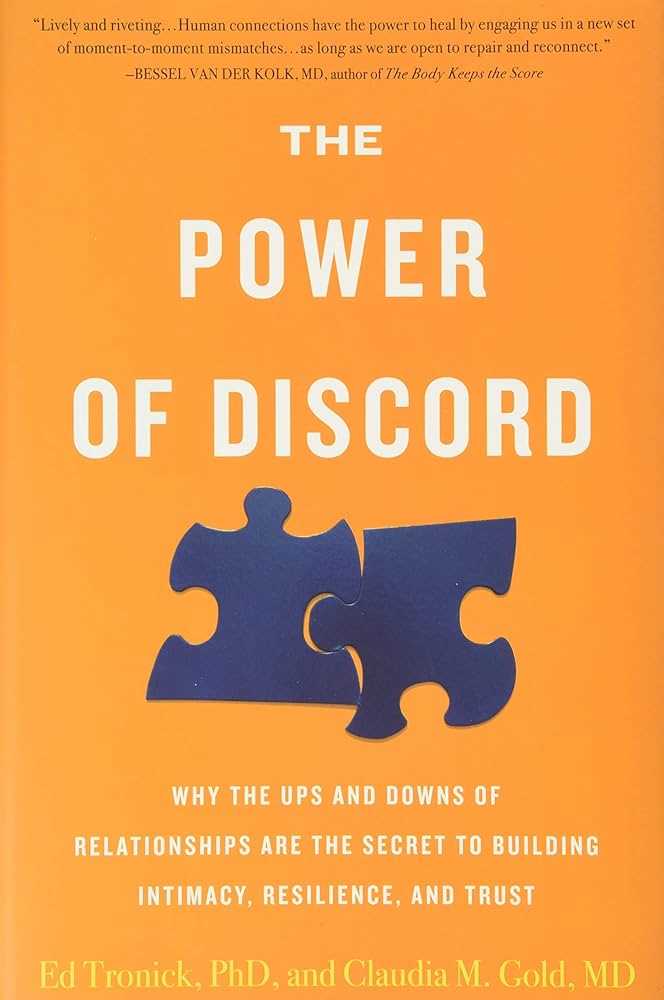
In today’s fast-paced world, stress has become an inevitable part of our lives. From work deadlines to personal responsibilities, we are constantly bombarded with situations that can trigger stress. However, what sets individuals apart is their ability to bounce back and thrive in the face of adversity. This ability is known as resilience.
Resilience is not just a trait that some people are born with, but rather a skill that can be developed and strengthened over time. It is the science of building mental and emotional strength to withstand and adapt to stressful situations. By cultivating resilience, we can navigate through life’s challenges with greater ease and emerge stronger on the other side.
The science behind resilience is complex and multifaceted. It involves understanding the physiological and psychological mechanisms that come into play when we experience stress. Researchers have discovered that stress resilience is not only about being tough or stoic, but also about having the ability to regulate our emotions and thoughts effectively.
Building resilience is both a science and an art. It requires a deep understanding of oneself, as well as the willingness to explore and experiment with different strategies and techniques. From mindfulness and meditation to cognitive restructuring and social support, there are countless tools that can help us strengthen our resilience muscles.
Understanding Stress Resilience
Resilience is the ability to bounce back and adapt in the face of adversity. When it comes to stress, resilience is what allows us to cope with and overcome challenging situations. It is the foundation that helps us stay strong and maintain our well-being.
Science has shown that some individuals are naturally more resilient than others. However, resilience is not solely determined by genetics. It is a skill that can be developed and strengthened through practice and understanding.
The art of stress resilience involves learning how to manage and respond to stress in a healthy way. It involves recognizing and acknowledging our emotions, thoughts, and physical sensations. By doing so, we can better understand the impact of stress on our bodies and minds.
Building resilience requires us to cultivate self-care practices and engage in activities that promote well-being. This may include exercise, meditation, therapy, or spending time with loved ones. By taking care of ourselves, we can better manage stress and build stronger resilience.
Understanding stress resilience is a continuous process. It is about recognizing that stress is a natural part of life and learning how to navigate through it. By strengthening our resilience, we can face challenges with greater confidence and lead healthier, happier lives.
The Impact of Stress on Mental and Physical Health
Stress is a common experience that affects individuals both mentally and physically. The science behind stress reveals its powerful influence on our overall well-being. When faced with stressful situations, our bodies release hormones like cortisol, which can have both short-term and long-term effects on our health.
On a mental level, stress can lead to increased anxiety, depression, and difficulty concentrating. It can also impair memory and decision-making abilities. The constant pressure and strain can take a toll on our mental health, making it harder to cope with daily challenges.
Physically, stress can manifest in various ways. It can weaken the immune system, making us more susceptible to illnesses and infections. It can also lead to headaches, muscle tension, and digestive problems. Chronic stress has been linked to more serious health issues such as cardiovascular disease, obesity, and diabetes.
Resilience, both in the science and art of stress management, plays a crucial role in mitigating the impact of stress on our mental and physical health. Building resilience involves developing coping mechanisms and adopting healthy lifestyle habits. This can include engaging in regular exercise, practicing mindfulness and relaxation techniques, maintaining a balanced diet, and seeking support from friends, family, or professionals.
By strengthening our resilience, we can better navigate the challenges that life throws at us. It allows us to bounce back from adversity, maintain our mental well-being, and protect our physical health. Understanding the impact of stress and investing in resilience-building practices can lead to a happier and healthier life.
The Concept of Stress Resilience

Resilience is the ability to adapt and bounce back from stress, adversity, trauma, or any other challenging situation. It is a key component of mental and emotional well-being, allowing individuals to navigate through difficult times and emerge stronger.
Stress resilience refers to the capacity to withstand and recover from the negative impact of stress. It is not about eliminating stress altogether, but rather about building the inner strength and resources necessary to cope with it effectively.
Stress resilience is both a science and an art. From a scientific perspective, it involves understanding the physiological and psychological mechanisms that underlie stress and resilience. Researchers have identified various factors that contribute to resilience, including genetics, brain structure, and social support.
From an artistic perspective, stress resilience involves the cultivation of certain skills and attitudes that can help individuals better navigate stressful situations. These may include mindfulness, self-care practices, positive thinking, and effective problem-solving.
By developing stress resilience, individuals can not only manage stress more effectively, but also experience personal growth and transformation. They can learn to view stress as an opportunity for growth and development, rather than a threat. With practice and perseverance, stress resilience can be strengthened, allowing individuals to lead healthier, happier, and more fulfilling lives.
Building Stress Resilience
Stress is a common experience in our fast-paced modern world. It can have negative effects on our physical and mental health, as well as our overall well-being. However, with the right tools and strategies, we can build stress resilience and become stronger in the face of adversity.
Resilience is the ability to bounce back from difficult situations and adapt to changes. It is a skill that can be developed and strengthened through the application of science-based techniques. By understanding the underlying mechanisms of stress and resilience, we can learn how to better manage and cope with stressors in our lives.
One of the key aspects of building stress resilience is learning to identify and manage stressors. This involves recognizing the signs of stress and implementing effective stress management techniques. These techniques can include relaxation exercises, mindfulness meditation, and physical activity.
Another important factor in building stress resilience is cultivating a strong support network. Having a supportive community of friends, family, and colleagues can provide valuable emotional support and practical assistance during times of stress. This support network can also help to foster a sense of belonging and connection, which is crucial for resilience.
Additionally, building stress resilience involves developing healthy coping mechanisms and self-care practices. This can include engaging in activities that bring joy and fulfillment, such as hobbies or creative outlets. It also means prioritizing self-care activities, such as getting enough sleep, eating well, and practicing self-compassion.
In conclusion, building stress resilience is a process that requires both science-based strategies and personal commitment. By understanding the science behind stress and resilience, we can implement effective techniques to manage stressors and become stronger in the face of adversity. With the right tools and support, we can build stress resilience and improve our overall well-being.
Developing Coping Mechanisms
Stress is a natural part of life, and it can have both positive and negative effects on our well-being. While some stress can motivate us and help us perform better, too much stress can be overwhelming and detrimental to our health.
Fortunately, there is a growing body of science and art dedicated to helping individuals develop coping mechanisms to manage stress effectively. These coping mechanisms can help us build resilience and become stronger in the face of adversity.
One important aspect of developing coping mechanisms is understanding the science behind stress. By learning about the physiological and psychological processes that occur during stressful situations, we can gain insight into how stress affects us and develop strategies to mitigate its negative impact.
Additionally, incorporating art into our coping mechanisms can provide a creative outlet for expressing and processing our emotions. Engaging in activities such as painting, writing, or playing a musical instrument can help us release tension and find solace in the beauty of self-expression.
It is also crucial to recognize that coping mechanisms are not a one-size-fits-all solution. What works for one person may not work for another. Therefore, it is essential to experiment with different techniques and find what resonates with us personally.
Building a toolbox of coping mechanisms can involve practices such as mindfulness, meditation, exercise, and seeking support from loved ones or professionals. By incorporating a variety of strategies into our daily lives, we can create a comprehensive approach to managing stress and improving our overall well-being.
In conclusion, developing coping mechanisms is a dynamic and ongoing process. It requires a combination of scientific knowledge, self-reflection, and creative exploration. By investing time and effort into developing these mechanisms, we can become more resilient and better equipped to navigate the challenges that life throws our way.
Building a Supportive Network
One of the key factors in developing stress resilience is having a strong support network. Surrounding yourself with people who understand and support you can make a world of difference in your ability to handle stress and bounce back from challenging situations.
Building a supportive network is both a science and an art. It requires a combination of intentional effort and genuine connections. Here are some steps you can take to build a stronger support network:
- Identify your needs: Take some time to reflect on what kind of support you need. Do you need someone to listen to you vent, offer advice, or simply be there for you? Understanding your needs will help you seek out the right people.
- Reach out to others: Don’t be afraid to initiate conversations and reach out to others. Join clubs, organizations, or support groups where you can meet like-minded individuals who share similar interests or experiences.
- Be a good listener: Building a supportive network is a two-way street. Be a good listener and offer support to others when they need it. By being there for others, you will also create stronger connections and foster a sense of community.
- Cultivate relationships: Building a strong support network takes time and effort. Nurture your relationships by regularly checking in with your friends, family, or colleagues. Show genuine interest in their lives and be there for them when they need you.
- Seek professional help if needed: Sometimes, building a supportive network may not be enough. If you are struggling with chronic stress or mental health issues, don’t hesitate to seek professional help. Therapists, counselors, or support groups can provide additional guidance and support.
Remember, building a supportive network is an ongoing process. It requires both vulnerability and strength. By surrounding yourself with people who understand and support you, you can strengthen your resilience to stress and navigate life’s challenges with greater ease.
Practicing Self-Care

Self-care is an essential part of building resilience and managing stress. It is a science-backed strategy that involves taking intentional steps to prioritize your well-being and strengthen your ability to cope with challenges. By practicing self-care, you can improve your overall resilience and create a stronger foundation for managing stress.
There are many ways to practice self-care, and it’s important to find what works best for you. Some common self-care activities include:
| 1. Physical self-care | Taking care of your body through regular exercise, nutritious food, and adequate sleep. |
| 2. Emotional self-care | Engaging in activities that help you process and express your emotions, such as journaling or talking to a trusted friend. |
| 3. Social self-care | Nurturing your relationships and connecting with others who provide support and understanding. |
| 4. Mental self-care | Engaging in activities that stimulate your mind, such as reading, learning new skills, or practicing mindfulness. |
| 5. Spiritual self-care | Exploring your values and beliefs, engaging in activities that bring you a sense of purpose or connection to something greater than yourself. |
By incorporating these self-care practices into your daily life, you can strengthen your resilience and create a stronger foundation for managing stress. Remember, self-care is not selfish. It is a necessary part of taking care of yourself so that you can show up as your best self for others.

I am Patrina de Silva, a psychologist and mental health blogger in Sri Lanka. After obtaining psychology degrees from the University of Colombo and Monash University, I returned home to work as a counselor while also starting the popular blog “Pressy but Happy” to provide advice on psychological issues. Over the past decade, my empathetic articles have made my blog a leading mental health resource in the country. In addition to writing, I maintain a private therapy practice, frequently volunteer counseling time, and conduct seminars, driven by my passion for destigmatizing mental illness and educating the public on the mind-body connection. I strive to be an influential voice in my field through my compassionate approach.
